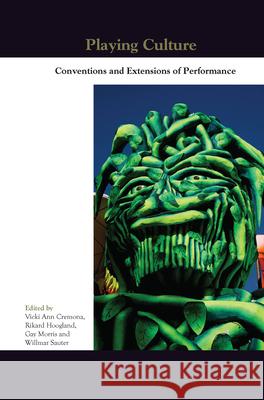Playing Culture: Conventions and Extensions of Performance » książka
Playing Culture: Conventions and Extensions of Performance
ISBN-13: 9789042037908 / Angielski / Miękka / 2014 / 292 str.
Playing Culture represents one of the corner stones in the model of the Theatrical Event, as developed by the Working Group of the International Federation for Theatre Research (IFTR). In this volume, thirteen scholars contribute to illuminate the significance and possibilities of playing within the framework of theatrical events. Playing is understood as an essential part of theatrical communication, from acting on stage to events far from theatre buildings. The playfulness characterizing academic traditions sets the tone in the introduction, illustrating the four sections of the book: Theories, Expansions, Politics and Conventions. The theoretical chapters depart from the classical Homo Ludens and offer a number of new perspectives on what play and playing implies in today's mediatized culture. The contributions to the second section on extensions, deal with playing in non-theatrical circumstances such as market places, passports and stock holders' meetings. The third section on the politics of playing focuses on wood-chopping women, saints and youngsters in South African townships - all demonstrating their social and political ambitions and purposes. The last section returns to the stage on which performers intend to represent, respectively, themselves, Bunraku puppets or the audience. Playing appears in many forms and in many places and constitutes a basic principle of theatre and performance. This book touches upon important theoretical implications of playing and offers a wide range of historical and contemporary examples. Playing Culture - Conventions and Extensions of Performance is the third book of the IFTR Working Group on The Theatrical Event. The first volume, entitled Theatrical Events - Borders Dynamics Frames was published in 2004, followed by Festivalising Theatrical Events, Politics and Culture in 2007. The present volume continues to expand the vision of the Theatrical Event as a theory and model for the study of playing, theatre, performance and mediated events.











